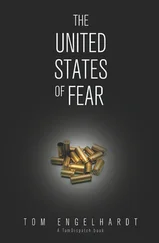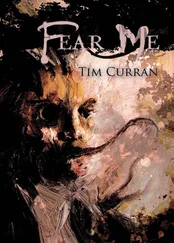Bands of four and five men — white men, of course — sprang up like wildflowers, holding forth from proper stages in real theaters in cities, and were attracting large audiences and large financial reward. The first of these bands that I saw was the Virginia Minstrels, so-called, with Emmett, Whitlock, Brower, and Pelham, in New York City. I went to see their performance at the old Bowery Theater, and I will never forget it. This was not just a man, however skilled, singing a few tunes, but a coherent musical group, with assigned parts, worked-out routines, harmonies. They exploded onto the stage; their movements, wild yet precise and timed to one another, expanded upon the music they made — tambourine, fiddle, bones, banjo. All were expert singers and dancers as well as masters of their instruments. Their performance galvanized me, as it plainly did everyone within hearing, and I resolved to form a troupe of my own.
Mulligan, it turned out, had been at the same performance, as well as several others by the same ensemble, at which he carefully studied the technique of the great Whitlock. When he and I met we were both carrying the same idea firmly — to establish a troupe — and after our initial skirmish we set to practicing with a singleness of purpose that was energizing to say the least. Our performances — Mulligan on the banjo and myself on the bones — began to be a primary attraction for Kimball, and it caused no small jealousy among the other acts, and at length we made up our minds to leave the circus at the end of a run in Camden and hop across the river to plant our flag in Philadelphia.
Mulligan had begun to defer to me in matters of business and organization. He was a great musician, but that is all he was. All his prodigious energies went into the subtleties of performance on the banjo. He was hopeless with money, and it was on this score, in fact, that I finally cemented an understanding with him.
Each week, Mulligan would no sooner draw his salary than it would evaporate like the morning dew in the harsh sunlight of a card game. He was forever borrowing money and sliding further into debt.
“John,” I said to him one day after listening to his chronic financial lament, “have you ever thought to save your money?” Saving money was a skill I had somehow inherited from my Scots forebears.
“James,” he said, “I cannot make ends meet as things stand now. How would I find two pennies extra, let alone enough to call ‘savings’?”
“Let me do this,” I said. “Have Kimball pay both our salaries to me, and then I will pay you myself. And after one month we will see if that works to your satisfaction. I will save your money for you.”
He watched my face as if I had posed a very difficult mathematics problem and he was considering whether to attempt an answer. Finally, he said, “You would pay me?”
“Yes,” I said. “And you may abandon the arrangement at any time you wish, and retrieve your escrows from me.”
“Escrows?”
“Savings.” He regarded me with a puzzled, vaguely suspicious expression, and I said, “John, you know where I am twenty-four hours a day. I could hardly slip out on you even if I wanted to.”
Still somewhat puzzled, he agreed to the arrangement. He was making, at that time, twelve dollars per week; I was drawing ten. Kimball, after making sure that Mulligan was in agreement, began paying the full twenty-two dollars to me on every Friday, and I would pay Mulligan ten directly. He bristled initially, but agreed to see if he could live within the constraint. After the second week it began to seem normal to him. After the third I believe he forgot the arrangement entirely. At the end of the sixth week, when I paid him his Friday salary, I presented him with an additional twelve dollars.
Dumbfounded, he asked, “What is this for? Where did you get this?”
“These are your savings,” I said. “You may collect them now, or I can continue to hold them for you and add to them each week.”
His gaze bounced several times between the banknotes and my own face. He shook his head once, then again, then said, simply, “Thank you. Let’s continue.”
From then on I was treasurer of a corporation of two. And when at length we were ready to leave Kimball and make a start in Philadelphia, Mulligan ceded the helm to me in all logistical matters. Our reputation preceded us, and by putting out word that we were forming a troupe we quickly attracted interest from local players. This is how we found Powell, Eagan, and Richards, who was later replaced by Burke.
We put to good use what we had learned from Emmett and Whitlock, from Sweeney, and from the Colored amateurs we had studied and emulated. When we hit the stage there was no going back, for anyone. The curtain would rise upon us, seated in front of our painted plantation backdrop, and with a whack on the tambourine and my call of “ Good ebening, brudders and sistuhs! ” the hall was transfigured. We did not yet understand the nature of the illusion, nor that all the gaiety existed exactly because of the tragedy and injustice that even then bore down upon our nation. We would learn. But we did not know it then. When this elbow jabbed at the tambourine’s thump, and Eagan’s feet tapped out a tattoo as he played an Irish jig with an Ethiopian accent while Mulligan’s banjo kept up a constant commentary, now mocking, now assenting, and my bones rolled chittering challenges at the others. . well, the audience was transported, and we were as well. Even when Burke would arise to deliver a recitation concerning the demise of Old Master, or of a favored hunting dog, the presence of the black mask insulated us, and our listeners, from a full encounter with tragedy. It was our escape from our own yoke. It brought us alive.
Thus, the Virginia Harmonists. None of us, to be sure, had ever lived in Virginia. Yet we enacted our imagined scenes of plantation life, our comic dialogues, our walk-arounds and our solo routines, our “Boatman Dance” and “Clare de Kitchen,” assuming a set of alternate identities behind the burnt cork, and we found a freedom there, behind the dark mask. The bitter irony of it all was as yet invisible to us. We were innocents, and yet we were complicit in a monstrous evil, in ways we could not see. But I am getting ahead of my story.
For six months, we performed at the Walnut Street Theater for a percentage of the entry receipts. “Theater” was something of a euphemism — it was really a wooden barn, which eventually burned to the ground, taking half a city block with it. Then Barton opened his theater on Arch Street; our reputation was becoming firm, and he hired us for a week’s run, which became a two-weeks’ run, and then we became a fixture.
Philadelphia was my Promised Land. The traveling life provided a sense of the new as long as you kept moving, as if you walked on water. Stop for a moment and you sank. But the city, at least at first, kept one afloat on a fizzing bath of stimulation and possibility. There was a great university, situated next to the lowest kind of taverns. Leafy, shaded sidewalks ran alongside fine wrought-iron fences, then gave way on the very next block to a series of dilapidated shacks sagging under a withering sun. If one walked two blocks one might as well have been in a different city. Dust and ceaseless noise behind makeshift plank fences, covered with handbills and posters, behind which buildings rose and fell. Citizens only two years removed from changing wagon wheels in the mud promenaded now in fine carriages. On the sidewalks one bumped into, or steered around, clerks, ministers, lampmakers, thieves, professors, and prostitutes. One rubbed shoulders with more people in an hour than one might have met in a year in the country, yet the streets afforded a sense of privacy, almost of invisibility. People arrived constantly from points unknown and created entirely new identities for themselves, masks that hid their history.
Читать дальше










